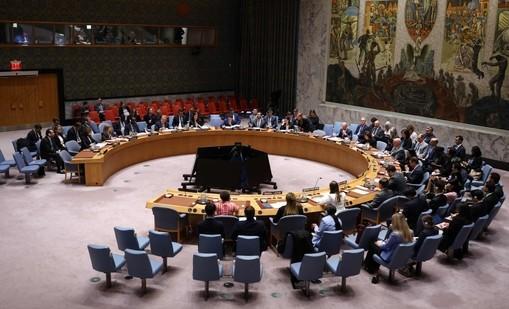
Title: Was LeT involved? UNSC asks Pak on J&K attack, refuses to accept ‘false flag’ claim
The United Nations Security Council (UNSC) has raised serious concerns over the recent attack on tourists in Pahalgam, Jammu and Kashmir, with members questioning the involvement of the Lashkar-e-Taiba (LeT) terror outfit, which is based in Pakistan. The UNSC held a closed-door meeting at the request of Pakistan, but instead of accepting Islamabad’s claim that the attack was a “false flag” operation, members refused to buy into it.
The UNSC’s refusal to accept Pakistan’s narrative has significant implications for the region, highlighting the ongoing tensions between India and Pakistan over terrorism and the Kashmir issue. The attack on the tourists in Pahalgam, which left several people injured, has sparked widespread outrage and calls for action against those responsible.
The UNSC’s concerns were first reported by ANI, a leading news agency that has been at the forefront of covering the Kashmir issue. According to ANI, some members of the UNSC brought up the targeting of tourists on the basis of religion during the meeting, suggesting that the attack may have been motivated by religious extremism.
Pakistan, which has long been accused of sponsoring terrorist activities in India, has been trying to shift the blame for the attack onto India. Islamabad has claimed that the attack was a “false flag” operation designed to discredit Pakistan and distract from India’s human rights abuses in Kashmir.
However, the UNSC’s refusal to accept this narrative suggests that there may be more to the story than what Pakistan is letting on. The UNSC’s concerns over the involvement of LeT, which is considered a terrorist organization by several countries, including the United States and India, are particularly noteworthy.
LeT has a long history of carrying out terrorist attacks in India, including the 2008 Mumbai attacks that killed over 160 people. The group is known for its brutal tactics and has been accused of targeting innocent civilians, including tourists.
The UNSC’s questioning of Pakistan’s involvement in the attack is not surprising, given the country’s history of supporting terrorist groups. Pakistan has long been accused of providing safe haven to several terrorist organizations, including LeT, and has been criticized for its failure to take action against them.
The UNSC’s concerns over the attack are also significant because they come at a time when the region is already grappling with several crises. The Kashmir issue, which has been a source of tension between India and Pakistan for decades, has become increasingly volatile in recent years.
The attack on the tourists in Pahalgam has sparked widespread outrage and calls for action against those responsible. The Indian government has vowed to take stern action against those involved in the attack, and has also sought to internationalize the issue by raising it with the UNSC.
The UNSC’s refusal to accept Pakistan’s “false flag” narrative is a significant development in this context, as it suggests that the international community is not buying into Islamabad’s excuses. The UNSC’s concerns over the involvement of LeT and other terrorist groups in the attack are also significant, as they highlight the ongoing threat posed by terrorism in the region.
In conclusion, the UNSC’s refusal to accept Pakistan’s “false flag” narrative on the Pahalgam attack and its questioning of LeT’s involvement are significant developments in the context of the ongoing tensions between India and Pakistan. The UNSC’s concerns over terrorism in the region are also noteworthy, as they highlight the ongoing threat posed by terrorist groups like LeT.
The international community must work together to address this threat and promote peace and stability in the region. This can only be achieved by taking a strong stance against terrorism and holding those responsible accountable for their actions.
News Source: https://x.com/ANI/status/1919603387328340406



